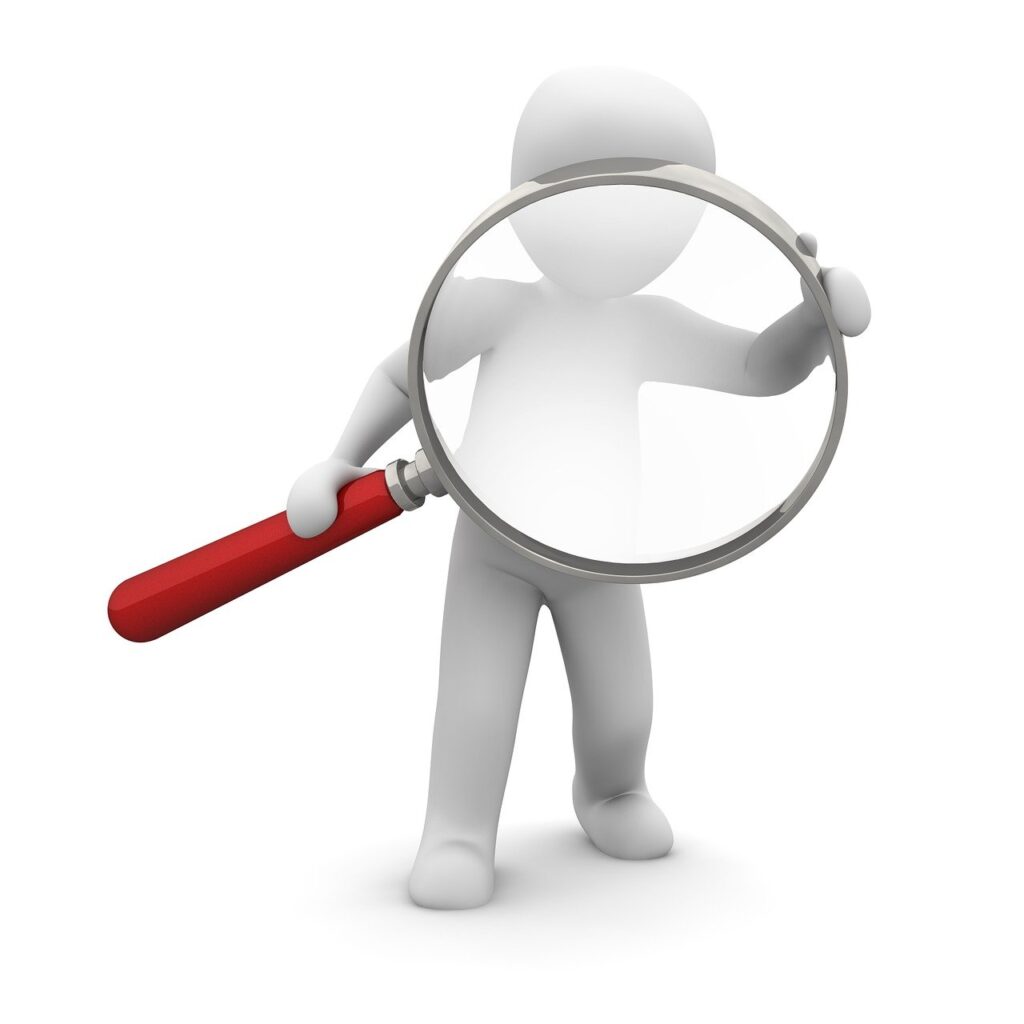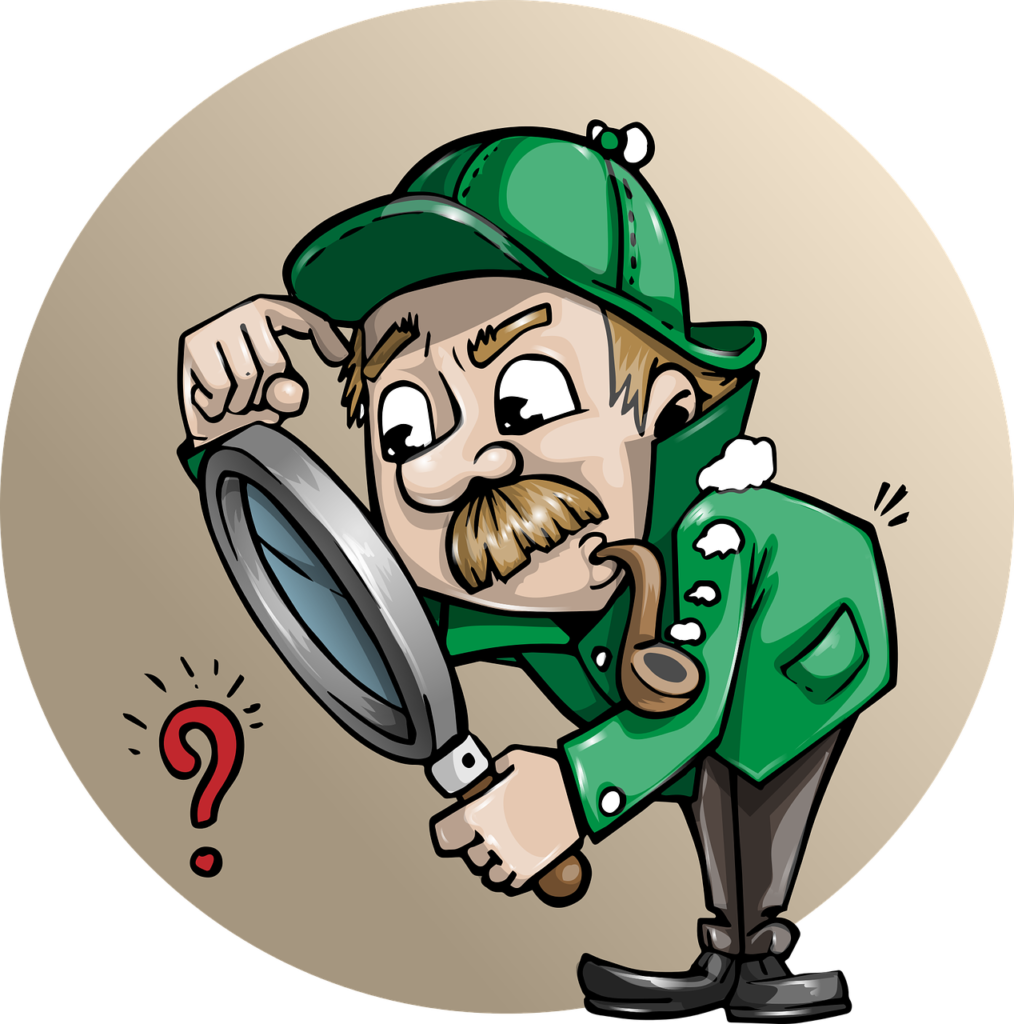Many people dream of stumbling upon hidden treasures, the kind of discovery that sets your heart racing and leaves you breathless with excitement. If you’re fascinated by the thrill of hunting for gold coins, then gold coin detecting and prospecting might just be the perfect hobby for you. With the possibility of unearthing valuable artifacts from the past and delving into the rich history they hold, this adventurous pursuit offers not only a chance to strike it rich but also a gateway into a captivating world of forgotten stories and gleaming treasures.

Equipment Needed for Gold Coin Detecting and Prospecting
Metal Detectors
When it comes to gold coin detecting and prospecting, having a reliable metal detector is essential. Look for models specifically designed for gold hunting as they have the right features and settings to maximize your chances of finding valuable coins. Research different brands and models, paying attention to factors like sensitivity, depth perception, and discrimination capabilities. Consider your budget as well and find a detector that fits within your price range.
Pinpointers
Pinpointers are handheld devices that help you locate the exact position of a target once your metal detector has signaled its presence. They are particularly useful for small targets like gold coins, as they reduce digging time and help prevent damage to your finds. Look for pinpointers that have a high level of sensitivity, a durable construction, and are easy to use in the field. Having a reliable pinpointer will greatly increase your efficiency and accuracy when hunting for gold coins.
Shovels and Digging Tools
When you find a promising target, you’ll need a few tools to unearth it. A sturdy shovel is a must-have, as it will allow you to dig into the ground and retrieve your finds. Opt for a shovel with a pointed or serrated edge for easy soil penetration. Additionally, consider investing in a digging tool with a narrow blade or a hand trowel for precise digging in tight spaces. Make sure your digging tools are durable and strong enough to handle various soil conditions.
Treasure Pouch or Bag
To keep your finds organized and protected, it’s important to have a dedicated treasure pouch or bag. Choose a bag that is large enough to hold all your equipment, including your metal detector, pinpointer, digging tools, and any other accessories. Look for bags with multiple compartments or pockets to keep coins and other artifacts separate. A good-quality bag will make it easier for you to carry your gear and ensure that your treasures remain safe and secure.
Optional Accessories
In addition to the essential equipment mentioned above, there are a few optional accessories that can enhance your gold coin detecting and prospecting experience. These include a backpack or harness system to carry your gear comfortably for long periods, a GPS unit to mark and record found locations, a sturdy knee pad for added comfort while digging, and a trash pouch to collect and dispose of any unwanted debris. These accessories are not essential, but they can make your outings more efficient and enjoyable.
Researching Potential Locations
Historical Records and Maps
One of the first steps in finding gold coins is researching potential locations where they may be hidden. Historical records and maps can provide valuable information about areas that were once populated or frequented by people who might have lost or buried coins. Visit local libraries, archives, or historical societies to access maps, written accounts, and other resources that can guide you to areas with historical significance.
Online Research
The internet offers a wealth of information for gold coin prospectors. Online databases, forums, and blogs dedicated to metal detecting and prospecting can provide valuable insights and tips from experienced hobbyists. Research historical events and stories related to your area of interest, as well as information about the type of coins that were in circulation during different time periods. Online research can help you narrow down potential locations and increase your chances of finding gold coins.
Local Knowledge and Networking
Building connections with locals who may have knowledge of potential gold coin locations is another valuable resource. Talk to long-time residents, historians, or fellow metal detector enthusiasts in your area. They may be able to offer tips, share stories, or provide guidance based on their own experiences. Joining local metal detecting clubs is a great way to meet like-minded individuals and gain access to a network of knowledge and resources.
Understanding How Metal Detectors Work
Electromagnetic Field and Coils
Metal detectors work by creating an electromagnetic field that interacts with metallic objects in the ground. As you sweep the detector over the soil, the coil emits a magnetic field and detects any disruptions caused by metal objects. The size and shape of the coil can affect the depth and sensitivity of the detector. Larger coils are more sensitive to larger objects at greater depths, while smaller coils are better suited for locating smaller targets like gold coins.
Discrimination and Target ID
Discrimination is a feature on most metal detectors that allows you to filter out specific types of metals and focus on valuable targets like gold coins. Different metals have different conductivity levels, and detectors can be adjusted to discriminate against specific conductivity ranges. Additionally, target ID features provide visual or audio cues to help you identify the type of metal detected. Understanding discrimination and target ID capabilities will help you narrow down your search and avoid wasting time on unwanted targets.
Ground Balance and Sensitivity
Ground balance is an important setting that helps filter out signals from naturally occurring minerals in the soil. The mineral content can create false signals and interfere with your ability to detect gold coins. Adjusting the ground balance allows you to minimize this interference and focus on true targets. Sensitivity settings, on the other hand, determine how deep your detector can detect objects. Higher sensitivity settings increase the chance of finding small and shallow targets like gold coins but may also result in more false signals. Experiment with different sensitivity levels to find the optimal setting for your particular environment.
Basic Techniques for Gold Coin Detection
Sweeping Techniques
To effectively search for gold coins, it’s important to master proper sweeping techniques. Hold your metal detector with the search coil parallel to the ground, about an inch or two above the surface. Swing the detector side to side in a slow and controlled motion, overlapping your sweeps to ensure thorough coverage. Maintain a consistent pace and take your time to listen for signals. Practice different sweeping patterns and experiment with different swing speeds to increase your chances of finding hidden treasures.
Using Discrimination Modes
Utilizing the discrimination modes on your metal detector can save you time and effort by filtering out unwanted targets. Once you have familiarized yourself with the different conductivity levels of metals, adjust your discrimination settings accordingly. For gold coin detecting, you may want to focus on higher conductivity targets, such as silver or copper. Keep in mind that discrimination is not foolproof and there is always a chance of missing valuable finds, so it’s important to strike a balance between discrimination and thorough searching.
Understanding Audio Signals
Audio signals are a crucial component of metal detecting, as they provide essential feedback about the targets detected. Each metal detector emits different audio signals, usually consisting of different tones or pitch variations. Pay attention to the nuances of these signals, as they can indicate the size, depth, and conductivity of the target. Practice listening to different types of signals and learn to differentiate between trash and potential gold coins based on the audio feedback.
Digging and Recovery Techniques
Once you receive a strong signal indicating a potential gold coin, it’s time to dig. Use your pinpointers to precisely locate the target’s position. Make a small plug in the ground using your shovel or digging tool, being careful not to damage the target. Gently push the soil aside and use your pinpointer to locate the target within the hole. If necessary, widen the hole gradually until you retrieve your find. Be respectful of the environment and fill in any holes you dig, leaving no trace of your presence.

Understanding Land Ownership and Permissions
Public Lands and National Parks
When it comes to metal detecting on public lands or national parks, it’s important to research and understand the regulations in place. Some areas may prohibit metal detecting altogether, while others may have specific rules or permits required. Contact the managing authority or park ranger’s office to inquire about any restrictions, designated areas, and permit requirements. Always adhere to the rules and respect the natural and historical integrity of these protected areas.
Private Property
If you plan to prospect on private property, it is crucial to obtain permission from the landowner. Seek out the owner’s consent in person or through written communication, clearly stating your intention, duration of your visit, and any agreements regarding any findings. Establishing a respectful and transparent relationship with the landowner will not only ensure you are acting ethically but also increase your chances of gaining future access to the property.
Obtaining Permissions and Permits
In certain areas, you may need to obtain additional permissions or permits to engage in gold coin detecting and prospecting. Check with local authorities, historical societies, or land management agencies to find out if any permits are required. Be prepared to provide necessary documentation and fees if applicable. By following the proper procedures and obtaining the necessary permissions, you can ensure that your activities are legal and socially responsible.
Identifying Gold Coins and Other Finds
Coin Identification Guides
Identifying the coins you find is an exciting and important part of gold coin prospecting. Refer to coin identification guides or numismatic resources to learn about different types of coins, their features, and historical context. These guides often include close-up images, specifications, and information about coinage periods, which can help you determine the value and rarity of your finds. Educating yourself on coin identification will allow you to appreciate the historical significance of your discoveries.
Spectroscopy and Other Advanced Techniques
For more advanced identification techniques, spectroscopy can be a valuable tool. Spectroscopy uses light and its interaction with matter to determine the elemental composition of an object, including gold coins. Portable spectroscopy devices are available, allowing you to analyze coins on-site to confirm their composition. While not necessary for every find, spectroscopy can provide additional information and insight into the authenticity and composition of your gold coins.
Record-Keeping and Documentation
Keeping detailed records of your finds is crucial for both personal satisfaction and future research purposes. Take notes about the location, date, and conditions under which you made each find. Include details about the specific coin, such as its denomination, year, and any notable features. Take photographs of the coins from different angles, ensuring that they are well-lit and in focus. Properly documenting your discoveries will not only help you track your progress but also contribute to the preservation of historical knowledge.

Dealing with Environmental Factors and Challenges
Weather Conditions
The weather can significantly impact your gold coin detecting experience. Extreme heat, rain, or snow can affect the functionality of your equipment and make detecting more challenging. Take precautions such as wearing appropriate clothing, carrying water, and protecting your electronics from moisture. Be aware of how weather conditions can affect the ground, as wet soil can impede your detecting abilities while dry soil can enhance them. Adjust your techniques and equipment settings accordingly to optimize your chances of success.
Terrain and Vegetation
The type of terrain and vegetation you encounter can affect your ability to detect gold coins. Thick vegetation, such as tall grass or dense bushes, can make it difficult to sweep your metal detector properly. Clearing away vegetation or choosing areas with less obstructive growth can help improve your chances of finding coins. Additionally, some terrains, such as rocky or mineral-rich soil, may produce more false signals or interfere with your detector’s performance. Take these factors into consideration and adapt your techniques accordingly.
Trash and Iron Targets
While searching for gold coins, you are likely to come across a variety of metal objects, including trash and iron targets. These unwanted finds can be frustrating but are a part of the hobby. Use discrimination settings to minimize signals from these objects, but also be prepared to dig up and dispose of any trash you encounter. Cleaning up after yourself shows respect for the environment and helps maintain positive relationships with landowners and authorities. Remember, responsible metal detecting involves leaving the landscape better than you found it.
Protecting and Preserving Historical Finds
Proper Cleaning and Storage
Once you’ve uncovered a gold coin or other historical artifact, it’s important to handle it with care. Avoid using harsh chemical cleaners or abrasive materials, as they can damage the coin’s surface or remove patina. Instead, gently clean coins with mild soap and water, using a soft brush or cloth. After cleaning, store your finds in acid-free coin holders or capsules to protect them from scratches and environmental damage. Consider investing in a coin collection album or display case to showcase your treasures while keeping them safe.
Contacting Archaeological Authorities
If you stumble upon a significant historical find, such as a rare gold coin or an artifact of archaeological significance, it’s important to involve the appropriate authorities. Contact local archaeologists, historical societies, or museums and inform them about your discovery. Provide as much information as possible about the find, including its location, context, and any accompanying artifacts. These experts can help assess the importance of your find and guide you on the necessary steps for preservation and potential display.
Contributing to Research and Preservation Efforts
As a gold coin detector and prospector, you are in a unique position to contribute to ongoing research and preservation efforts. By sharing your finds and experiences with local historians or participating in community events, you can contribute to a better understanding of the region’s history. Consider joining volunteer projects or citizen science initiatives focused on cataloging, documenting, and preserving historical finds. Your contributions can make a meaningful impact on the knowledge and appreciation of our shared past.
Joining Metal Detecting and Prospecting Communities
Local Metal Detecting Clubs
Joining a local metal detecting club is a fantastic way to connect with other like-minded enthusiasts. These clubs often organize group outings, share tips and tricks, and provide a supportive community for beginners and experienced hobbyists alike. Members may also have access to private lands or organized hunts that are not open to the general public. Participating in club activities allows you to learn from others, exchange ideas, and forge lasting friendships with fellow treasure seekers.
Online Forums and Social Media Groups
In addition to local clubs, online forums and social media groups provide a platform to engage with the global metal detecting and prospecting community. These online communities are a wealth of information, with members sharing their experiences, posting photos of their finds, and providing advice on equipment, techniques, and research. Participate in discussions, ask questions, and interact with other enthusiasts from around the world. Engaging with these communities can enhance your knowledge, expand your network, and keep you up to date with the latest developments in the hobby.
Participating in Events and Competitions
Attending metal detecting events and competitions can be both fun and rewarding. These gatherings bring together enthusiasts from all skill levels, offering opportunities to learn from experts, test your skills, and potentially win prizes. Events often include organized hunts, lectures, workshops, and vendor exhibitions. Participating allows you to immerse yourself in the hobby, connect with fellow enthusiasts, and experience the excitement of friendly competition. Keep an eye out for local and regional events, as well as larger conventions and gatherings.
Ethics and Responsible Metal Detecting
Leave No Trace Principles
When engaging in gold coin detecting and prospecting, it is essential to adhere to the Leave No Trace principles. These principles encourage responsible outdoor practices that minimize environmental impact and preserve historical sites. Respect the natural and historical integrity of the land by leaving it as you found it, removing any trash or disturbances you create, and avoiding unnecessary damage to vegetation or structures. By practicing Leave No Trace, you help ensure that future generations can enjoy the same opportunities to discover and appreciate our shared history.
Respecting Property and Archaeological Sites
Always respect private property and archaeological sites when metal detecting. Understand that some areas may be off-limits due to legal restrictions, landowner preferences, or cultural sensitivity. Avoid disturbing or damaging historic structures, burial grounds, or culturally significant areas. Seek permission before entering any property and adhere to any conditions set by the landowner. Treat every find and the land on which you search with respect and care. Your responsible actions will preserve these sites for future generations.
Reporting Significant Finds
If you make a significant find or discover an archaeological site while metal detecting, it’s important to report it to the appropriate authorities. Notify local archaeologists, historical societies, or land management agencies about your discovery. Provide detailed information about the location, context, and any accompanying artifacts to assist in documenting and preserving the find. Responsible reporting ensures that valuable historical information is captured and that artifacts can be properly studied, conserved, and shared with the public.
Gold coin detecting and prospecting is an exciting and rewarding hobby that allows you to unearth hidden treasures and connect with the past. By understanding the necessary equipment, researching potential locations, mastering metal detector techniques, and adhering to ethical practices, you can become a successful and responsible treasure hunter. Continue to learn, explore, and engage with the metal detecting and prospecting community, and enjoy the thrill of uncovering the rich history that lies beneath the surface. Happy hunting!
